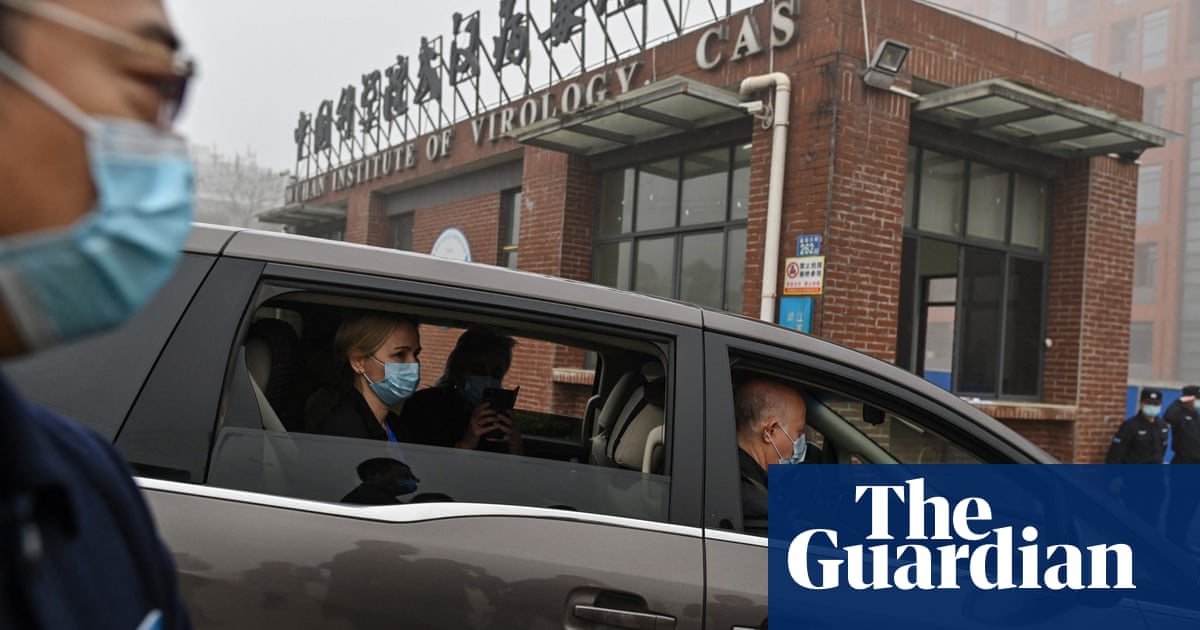China refuses further inquiry into Covid-19 origins in Wuhan lab
China’s government has refused to cooperate with the second stage of an international investigation into the origins of Covid-19, labelling a proposal to audit Chinese labs as “arrogance towards science”.
Chinese health officials held a press conference on Thursday to respond to last week’s proposal by the World Health Organization that the second phase of its investigation into the origins of the pandemic should include “audits of relevant laboratories and research institutions operating in the area of the initial human cases identified in December 2019”, meaning the city of Wuhan.
At a closed-door meeting with member states last Friday, the WHO’s director general, Tedros Adhanom Ghebreyesus, said it expected China “to support this next phase of the scientific process by sharing all relevant data in a spirit of transparency”.
But on Thursday China’s vice-minister of health, Zeng Yixin, said he was extremely surprised by the proposal, which he said showed “disrespect for common sense and arrogance towards science”.
“We won’t follow such a plan,” Zeng said.
At the press conference, which was widely reported on state media, Zeng said the WHO’s investigation in January had effectively ruled out the possibility that the virus had escaped from a laboratory. He said studies had already determined there was “no evidence” the virus was human-made and called for investigators to look at overseas locations instead, accusing foreign governments and media of political interference.
Show more
“The Chinese government supports origin studies based on science, yet we oppose politicising the origin studies,” he said.
The lab theory – which posited the virus leaked from, or was manufactured in, a Wuhan lab – was amplified by the former US president Donald Trump and his allies, and largely dismissed as a rightwing conspiracy theory. However, calls for closer investigation of the possibility have recently gained ground, and last week Ghebreyesus said the push to discount the theory had been “premature”.
Zeng said the mission by the WHO’s team of independent investigators earlier this year had determined the lab leak theory was extremely unlikely and there was “no need for repetitive work”.
“We hope with full consultation with member states, the early stage case search should be conducted in multiple places, globally,” he said.
The joint WHO-China mission in January came after lengthy negotiations, and was criticised for lacking transparency and access, amid claims the investigators were not provided the data they requested.
The mission published a report in late March, which drew no firm conclusions about how the virus first jumped to humans, but instead ranked various hypotheses, finding the most likely scenario that the virus jumped from bats to humans via an intermediate animal. An alternative theory involving the virus leaking from a laboratory was deemed extremely unlikely, but not ruled out. It was later criticised for not exploring the lab origin theory in sufficient depth.
On Thursday Zeng said the results would “stand the test of time” and maintained China fully cooperated with all WHO requests. China has consistently rejected findings that it covered up or impeded early investigative and response work when the virus first emerged.
The WHO proposal came amid increasing international pressure, largely from the US, for further investigation in Wuhan and specifically of the Wuhan Institute of Virology.
In response Chinese officials have pushed suggestions that the virus began in another country, accused media of fabricating claims about the Wuhan Institute, and have repeatedly resurfaced unevidenced theories linking the virus to the US military base, Fort Detrick.
Additional reporting by Agence France Presse













